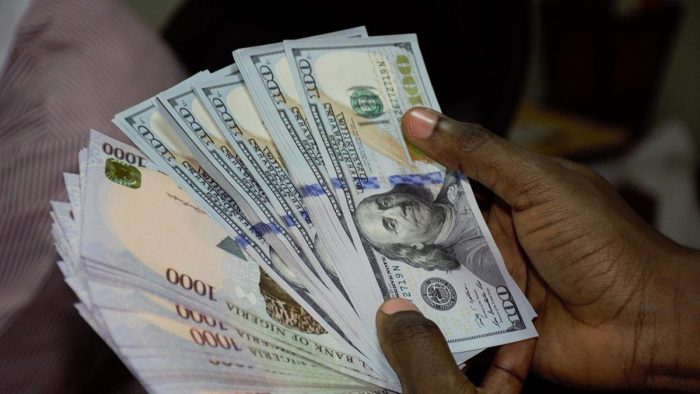The naira on Tuesday depreciated by N95.83 on the official foreign exchange (FX) market, shortly after the Central Bank of Nigeria (CBN) announced the Monetary Policy Committee’s (MPC) decision to raise interest rates for the fifth consecutive time this year.
By the close of trading on Tuesday, the naira fell by 5.8 percent, with the dollar being quoted at N1,658.48, compared to N1,562.66 quoted on Monday at the Nigerian Autonomous Foreign Exchange Market (NAFEM), according to data from FMDQ Securities Exchange Limited.
In terms of liquidity, the dollar supply from willing sellers and buyers rose dramatically. The market saw a 66 percent increase in dollar availability, with a total of $166.36 million exchanged on Tuesday, up from $100.21 million recorded the previous day.
FMDQ’s market summary highlighted the intraday highs and lows in the FX market. The intraday high reached N1,682 on Tuesday, slightly down from N1,675 recorded on Monday. Meanwhile, the intraday low dropped to N1,570, compared to N1,540 on Monday, reflecting the volatility and the pressure the naira is facing in the FX market.
The naira also depreciated in the parallel market, often referred to as the black market. By Tuesday, the local currency had slipped to N1,675, losing N12 from the N1,663 quoted previously. This drop in the unofficial market signals the ongoing challenges the naira faces amid the broader economic pressures.
The CBN, following its MPC meeting, raised the Monetary Policy Rate (MPR) by 50 basis points, bringing the key interest rate to 27.25 percent. This is the fifth consecutive hike in 2024, as the apex bank continues its efforts to rein in inflation and stabilise the naira.
The MPC noted that the CBN’s tight monetary policy had brought about relative stability and a degree of convergence in exchange rates across various market segments.
Analysts from Coronation, a leading financial firm, observed that since the previous MPC meeting in July 2024, the naira had appreciated marginally by 1.5 percent in the NAFEM window, closing at N1,562.7 per US dollar as of September 23, 2024. However, the sudden depreciation on Tuesday highlights the complex dynamics in the foreign exchange market and the ongoing challenges in achieving currency stability.
CBN Governor Olayemi Cardoso addressed some of the underlying factors influencing the exchange rate, particularly the relationship between Federal Account Allocation Committee (FAAC) disbursements and liquidity levels in the banking system. “Members observed a strong correlation between FAAC releases and liquidity levels in the banking system, as well as its impact on the exchange rate,” Cardoso explained during the MPC briefing.
Cardoso also pointed to the rapid expansion of the money supply as a key factor driving inflation and the naira’s volatility. He noted that in 2015, Nigeria’s money supply stood at N19 trillion, but by 2023, it had ballooned to N54 trillion, a substantial portion of which was driven by “Ways and Means” – the CBN’s practice of lending to the government to cover fiscal deficits.
“That is a huge increase, and a substantial amount of that was through Ways and Means. So essentially, printing of money resulted in a huge amount of money chasing a relatively small amount,” Cardoso said, highlighting how this contributed to the current inflationary pressures and currency instability.
Join BusinessDay whatsapp Channel, to stay up to date
Open In Whatsapp





